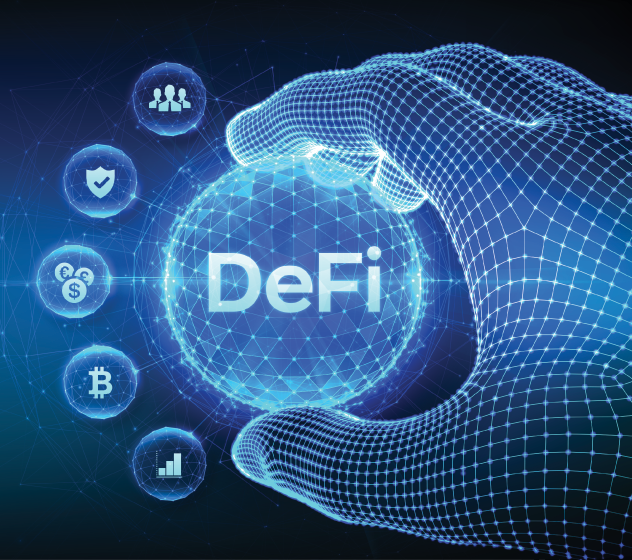Finance and Technology Conference 2023 on Decentralized Finance

Decentralized Finance (DeFi) started out with the promise to disrupt the financial industry by removing third parties and centralized institutions from financial transactions and hence allowing consumers direct access to capital and financial services.
Until now, however, DeFi’s disruptive forces have not manifested themselves purely favorably. In 2022 crypto currencies lost nearly $2 trillion in market value. Furthermore, the DeFi industry – often where it evolves into actually more Centralized Finance (CeFi) platforms – continues to be plagued by a disconcerting number of hacks, failures and bankruptcies (an insightful timeline here). While it might not be the underlying DeFi blockchain infrastructure that is to blame as such and some failures might also be excused through the to-be-expected glitches of a nevertheless still early-stage technology and its applications, some of the challenges can rather be attributed to the shortcomings of governance, regulation or the interfaces with centralized financial services and institutions.
During this conference we aim to shed light on what works and what does not in decentralized finance and how to build trust in it. We will discuss the way forward for socially and economically sustainable DeFi and what the next generation of DeFi may look like. Inevitably, the question whether more regulation will stifle or stimulate innovation, whether it may lead to a level-playing field that enhances security, compatibility between established and emerging players as well as consumer trust will arise. What are the key trends around the globe that influence an inherently interconnected market? What are the most promising options at hand?
This event is organized jointly by the Finance and Technology Programme and the Center for Digital Trust, EPFL, in collaboration with The Enterprise for Society Center (E4S).
Schedule
08h30
Registration and welcome coffee
09h15
Welcoming words
by Damir Filipovic, Professor, Head of the Swiss Finance Institute, EPFL
Part 1: Introduction
How to make sense of the recent DeFi and FinTech failures and why to (potentially) still make the case for DeFi?
09h20
Talk: Why decentralized finance (DeFi) matters
by Iota Kaousar Nassr, Senior Policy Analyst, OECD
Part 2: What works and what doesn’t in DeFi
Understanding the challenges and opportunities from an econ & finance perspective
09h45
Talk: On the quality of cryptocurrency markets: centralized versus decentralized exchanges
by Prof. Angelo Ranaldo, Chair in Finance & Systemic Risk, University of St. Gallen
10h15
Networking coffee
10h50
Talk: Central bank digital currencies and the emerging financial infrastructure
by Prof. Co-Pierre Georg, EDHEC Business School
Policy makers around the world are evaluating whether to introduce a central bank digital currency (CBDC). In this paper, we argue that a CBDC allows policy makers to maintain monetary sovereignty, improve competitiveness in the financial services industry, and lower the cost of payments. The technology choice implies important tradeoffs, notably between privacy and accountability, and pose significant practical challenges. Chief among those are interoperability, universal access, and scalability. We provide technical solutions that address the practical challenges and present policy makers with specific policy tradeoffs. We then evaluate these in light of practical experience we gained through various national CBDC pilots.
11h20
Talk: Governance minimization and immutability
by Robert Lauko, Founder and Head of Research, Liquity
Governance minimization aims to enhance trustlessness and transparency by making smart contracts as immutable as possible. While immutability mitigates the common risks related to on-chain voting (low participation, colluding majority, bribing etc.), it has its own challenges: what if there are bugs or unknown issues in a piece of code that isn’t upgradeable? Can a monetary system work autonomously without human intervention?
11h50
Networking lunch
Part 3: How to build trust in DeFi?
13h00
Talk: Is blockchain the right tool for DeFi? Understanding the fundamental limitations
by Gauthier Voron, Postdoctoral Researcher at Distributed Computing Laboratory, EPFL
This talk will give a perspective on Web3 by going back to the roots of the internet and the web, and explaining the link with blockchain technologies. The talk will also highlight some fundamental limitations of the very concept of a blockchain, suggest ways to circumvent these limitations and discuss the impact on decentralized finance.
13h25
Talk: [DeFi and cybersecurity]
by Ramsey el-Khazen, Head of Web3 Security, Kudelski
13h50
Talk: Tornado Cash and blockchain privacy – a primer for economists and policymakers
by Matthias Nadler, Doctoral Candidate, University of Basel
14h15
Panel: Regulation, enforcement and accountability – are they actually compatible with a decentralized world?
Moderated by Mark A. Greenslade, Head of Research and Development, Casper Association
Panelists
Victor Busson, CMO & Head of Strategic Partnerships, Taurus
Isabella Chase, Senior Policy Advisor, TRM Labs
Francisco de Fraga, Risks Officer, Sygnum Bank
Nico Hess, Legal and Policy Specialist, FINMA
Reto Luthiger, Partner, MLL Legal
15h10
Networking coffee
15h30
Keynote: Elements of the future monetary system
by Hyun Song Shin, Economic Advisor and Head of Research, Bank for International Settlements
This presentation examines alternative models for digital money, and the possible role of central bank digital currencies (CBDCs) in these alternative models. The presentation compares a monetary architecture based on tokenised deposits underpinned by settlement using CBDCs with an alternative based on stablecoins that circulate. Tokenisation of securities and other claims would be additional elements that could enhance the functionality of the monetary system.
Part 4: Conclusion
16h15
Panel: What is the way forward for socially and economically sustainable DeFi?
Moderated by Jean-Pierre Danthine, Managing Director, Enterprise for Society (E4S)
Panelists
Michael Egorov, Chief Executive Officer, Curve Finance
Jacques Iffland, Chairman, The Capital Markets and Technology Association (CMTA)
Iota Kaousar Nassr, Senior Policy Analyst, OECD
Hyun Song Shin, Economic Advisor and Head of Research, Bank for International Settlements